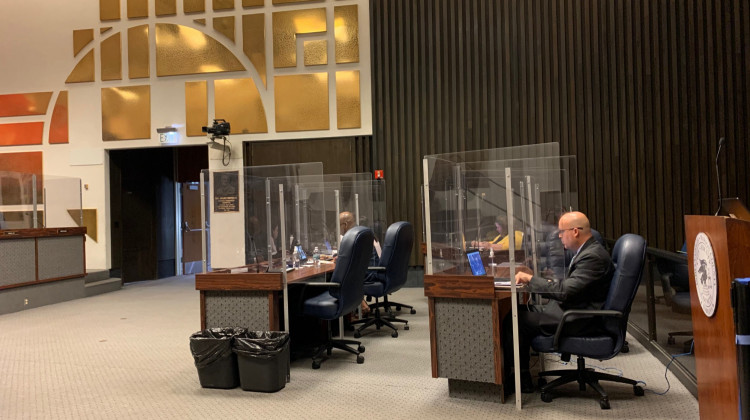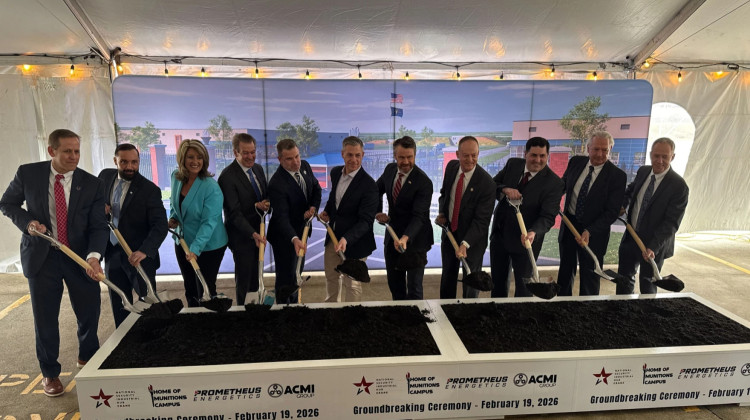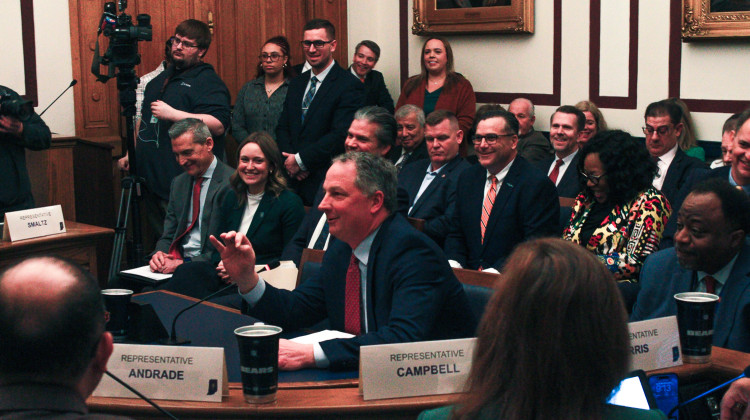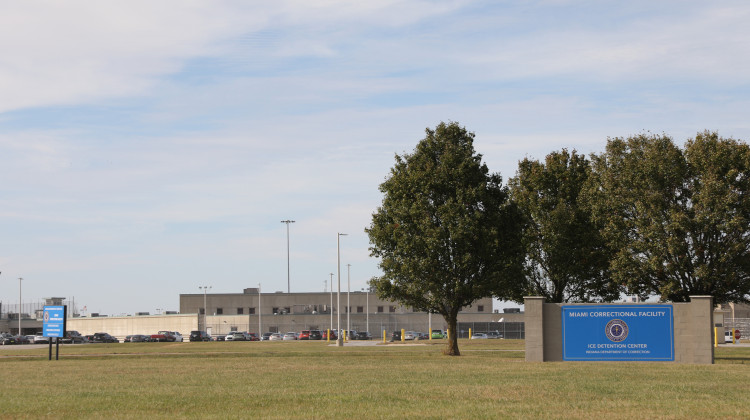Ahead of this weekend's Democratic pre-primary convention, some Black elected officials say they won't participate. They say the nomination process is inequitable and favors party insiders. At the heart of that concern? Precinct committee people, who are often appointed and lead the process. To help us learn more, WFYI's Jill Sheridan spoke with reporter Amelia Pak-Harvey, who covers this issue for the Indianapolis Star.
Indianapolis Star Reporter Amelia Pak-Harvey: So this comes a few days ahead of the Democratic Party's pre-primary convention where the party chooses which candidates to endorse in the upcoming primary. And that's often seen as a kind of a must have endorsement if you're going to win. So this week, the Indiana Black Legislative Caucus joined the Marion County Black Elected Officials group to say that they have concerns with the process, particularly with conflicts of interest with the chair Kate Sweeny Bell.
This has kind of been an issue that's been bubbling under the surface for a few years now. But it's I think it's the first time we're seeing folks speak out against it. So the chair is also running for the county clerk position. But as chairs, you can also appoint these precinct committee people who will in turn on Saturday vote for who to endorse in the primaries. You've got a situation where you're appointing the people who could potentially vote for you.
But beyond that, the Black elected officials for Marion County have complained about just a process that hasn't really been inclusive of candidates of color. And so this week, they announced that a number of them won't be participating in this leading convention.
WFYI City Government and Policy Reporter Jill Sheridan: So talk about these, you know, these precinct committee people or PCs, as I understand they're, they're called, you know, what is this position? I know, it's sort of, you know, the lowest rung on the political ladder.
Pak-Harvey: So PCs are these hyperlocal technically elected officials outlined in state law, and they have two really important roles. There's Democratic PCs, there's Republican PCs. One is when there's a vacancy in an elected office, the PCs who live in that elected offices jurisdiction, will come together and vote to fill the vacancy. So if the Democrat is stepping down, Democratic PCs in that area will come together and vote, if it's a Republican that's stepping down Republican PCs are the ones that can vote.
The caveat here is that as of the most recent year, there were about 600 precinct positions, and a lot of people don't run for these positions. So if people aren't running for these positions, party rules allow the chair to appoint PCs in these positions. That's what's been happening, at least here in Marion County.
And another important thing to add is Marion County is one of, I believe, just two counties who do the slating process known as the pre-primary convention. So the second role that they have is they convene in their party's pre-primary convention to vote for who the party will endorse. And in Marion County, that's a really critical endorsement to have, particularly for Democrats.
Sheridan: So what are the calls for better transparency and changes to the system?
Pak-Harvey: Well, you're seeing a lot of younger Democrats trying to argue for change within the at least the Democrat system that includes you know, looking at whether we should end slating altogether, and just let the voters decide in the primary who they truly want to put forth in the general election.
There's also a push recently to have more people run for the office of PC, which again, is there's roughly 600 PCs, and a lot of them are appointed by the county party chair. So there's a push by some other groups to just get enough people grassroots effort really to run for PCs and be involved.
Sheridan: Well, certainly an important issue that we will be following your reporting on and thank you for taking some time today.
Pak-Harvey: Thanks.
Contact WFYI city government and policy reporter Jill Sheridan at jsheridan@wfyi.org. Follow on Twitter: @JillASheridan.
 DONATE
DONATE







 Support WFYI. We can't do it without you.
Support WFYI. We can't do it without you.